Chess strategy understanding Extra Challenge Worksheets for Ages 4-6
9 filtered results
-
From - To
Explore our engaging "Chess Strategy Understanding Extra Challenge Worksheets" designed for young learners aged 4-6. These carefully crafted worksheets provide an exciting introduction to basic chess strategy concepts, helping children develop critical thinking, problem-solving skills, and pattern recognition. Playful designs and age-appropriate challenges motivate kids to dive deeper into the world of chess. With varying levels of difficulty, these worksheets cater to different learning paces, ensuring everyone can grasp the essentials while having fun. Ideal for home or classroom use, these resources promote cognitive growth and a foundation for future strategic gameplay. Unlock your child's potential with our chess strategy worksheets today!
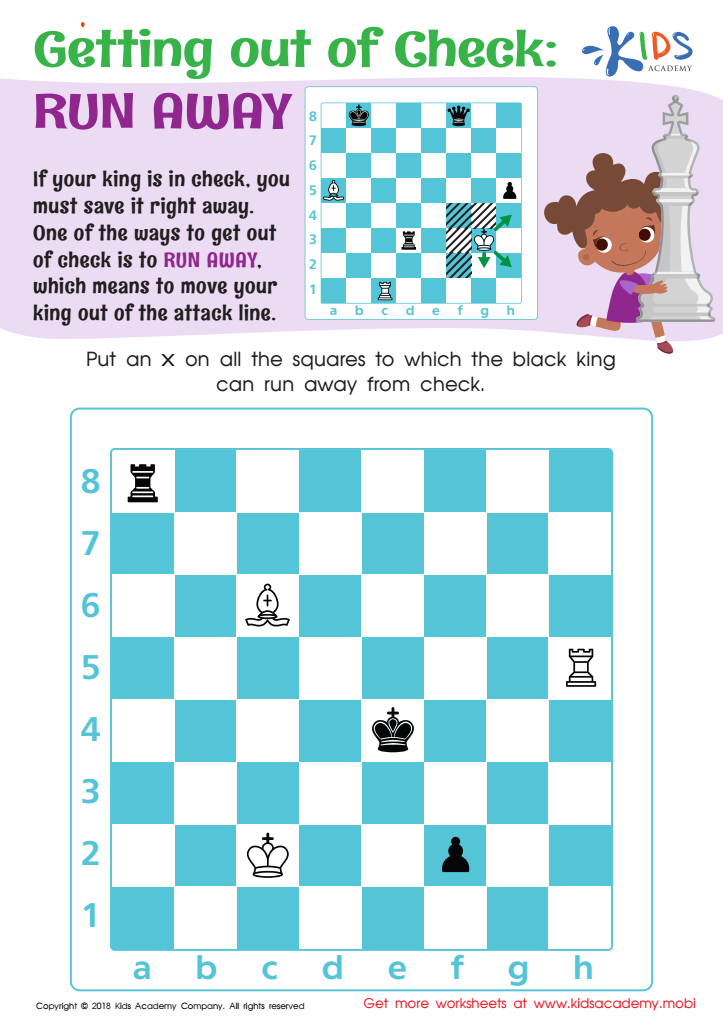

Getting out of Check: Run Away Worksheet
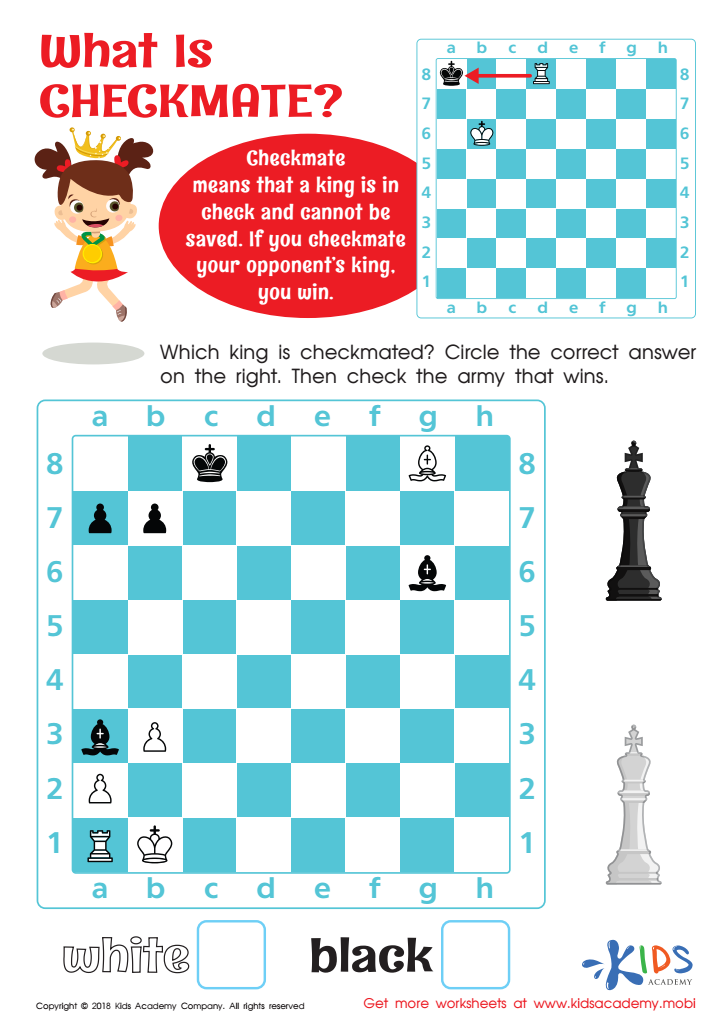

What is Checkmate? Worksheet
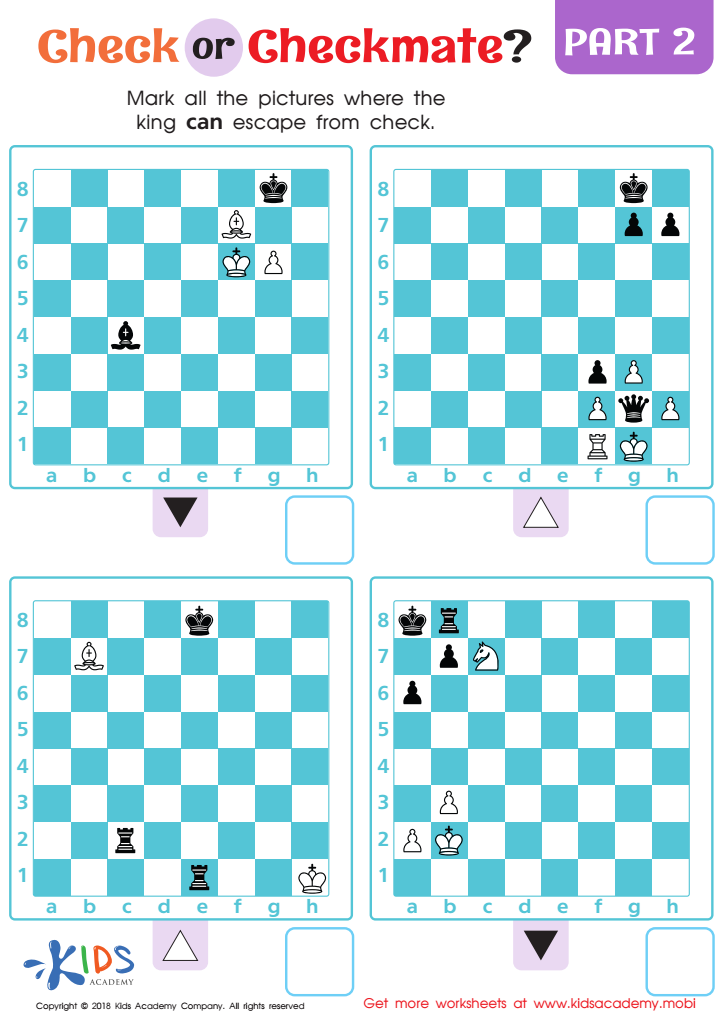

Check or Checkmate: Part 2 Worksheet
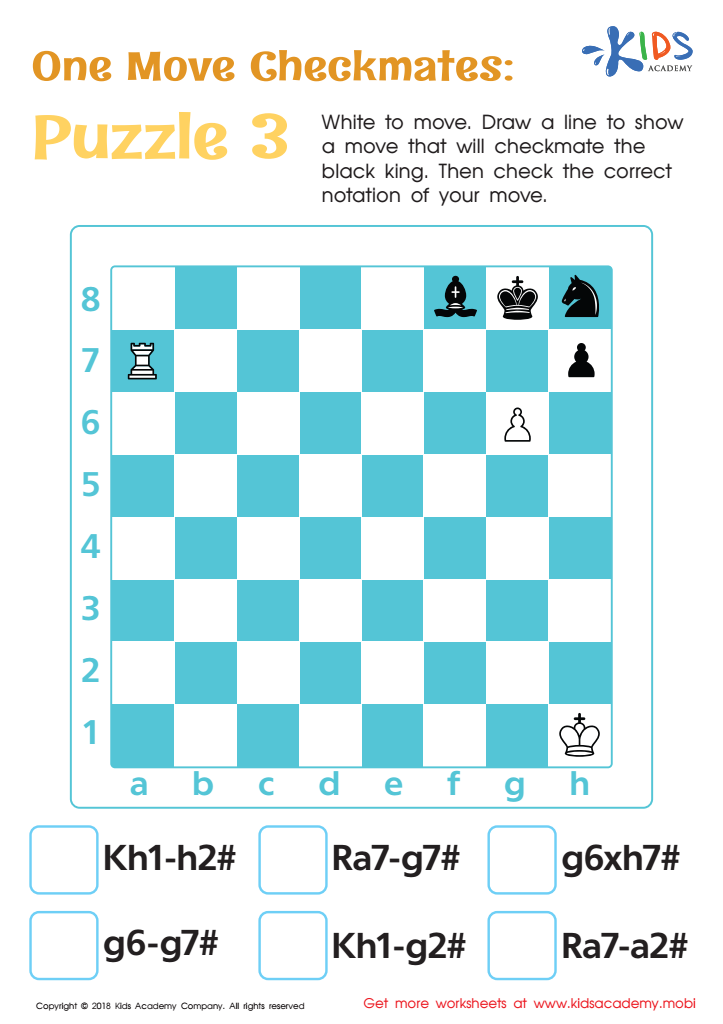

One Move Checkmates: Puzzle 3 Worksheet
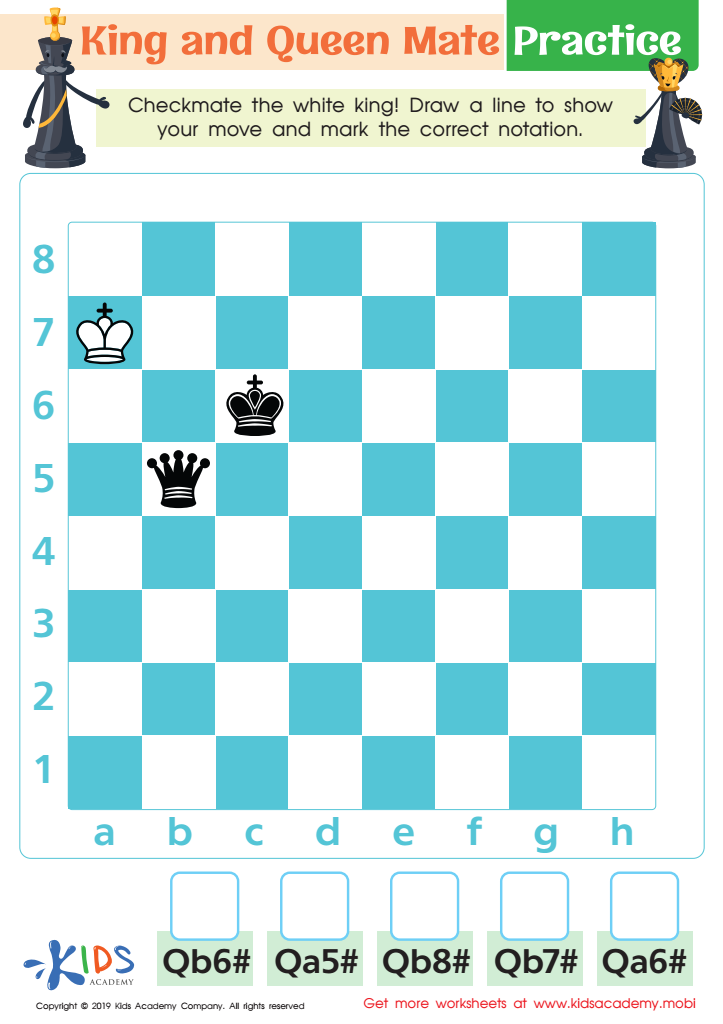

King and Queen Mate Practice Worksheet
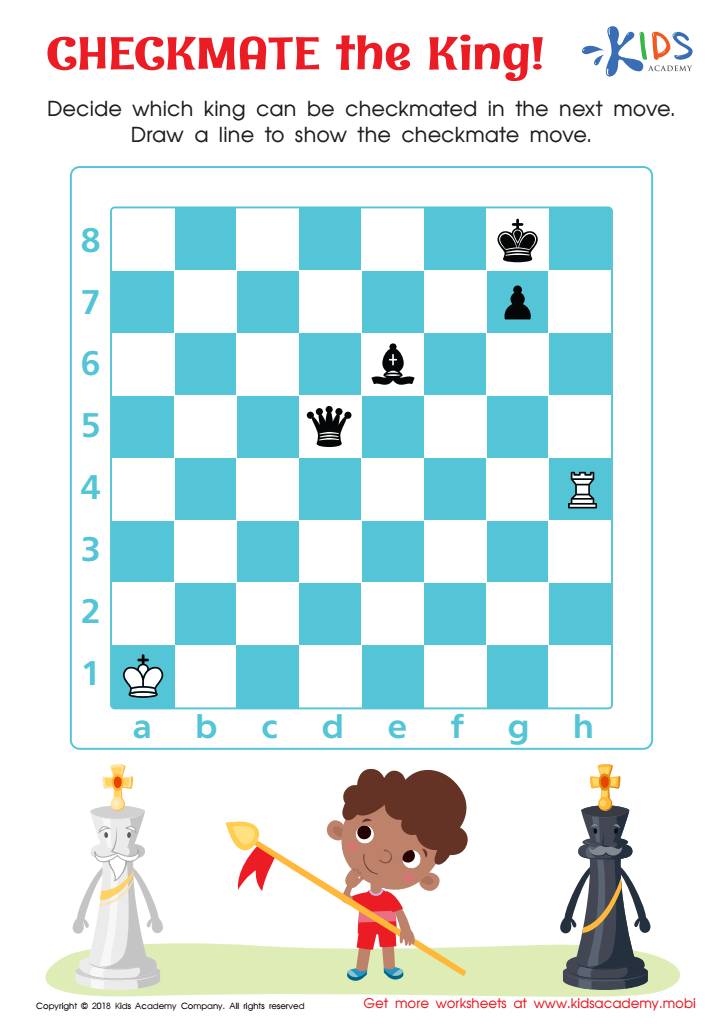

Checkmate the King Worksheet
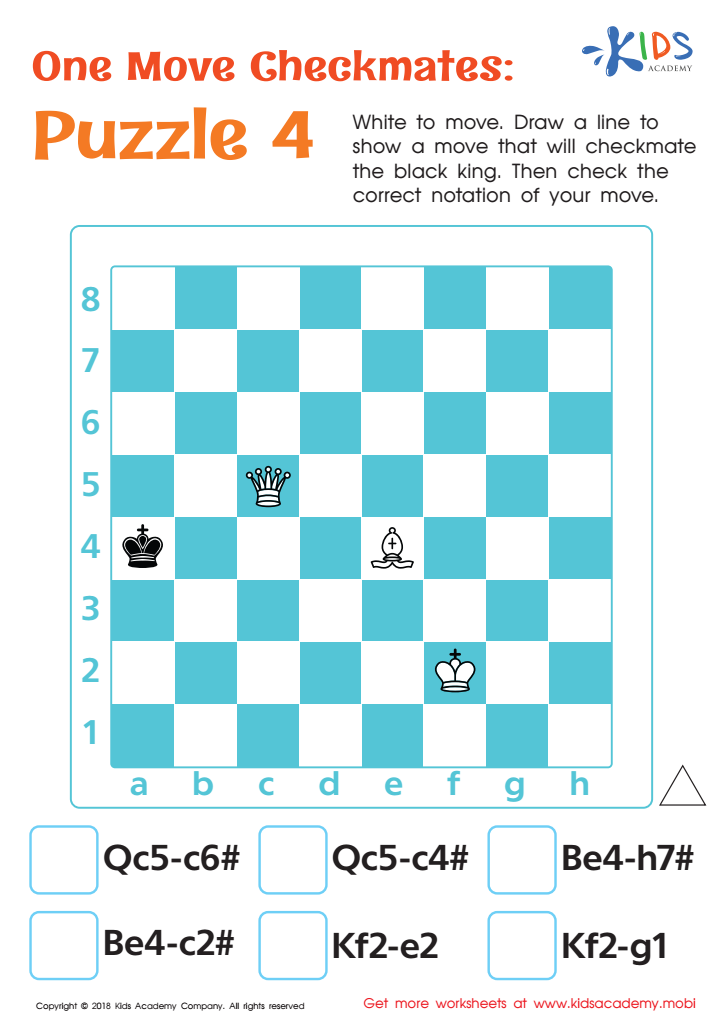

One Move Checkmates: Puzzle 4 Worksheet
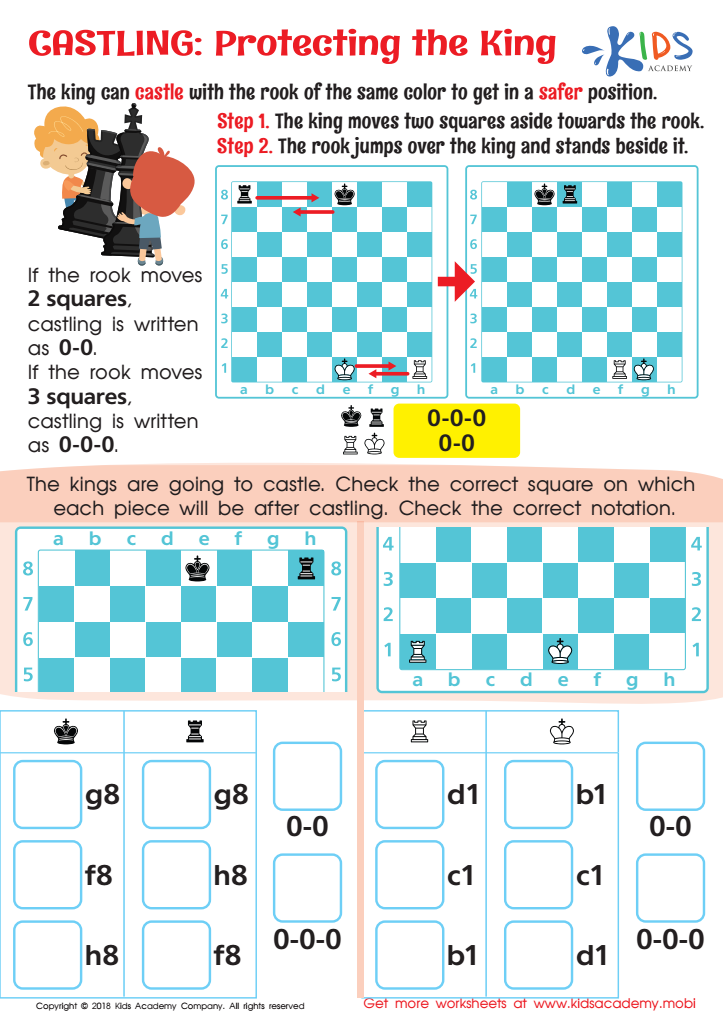

Castling: Protecting the King Worksheet
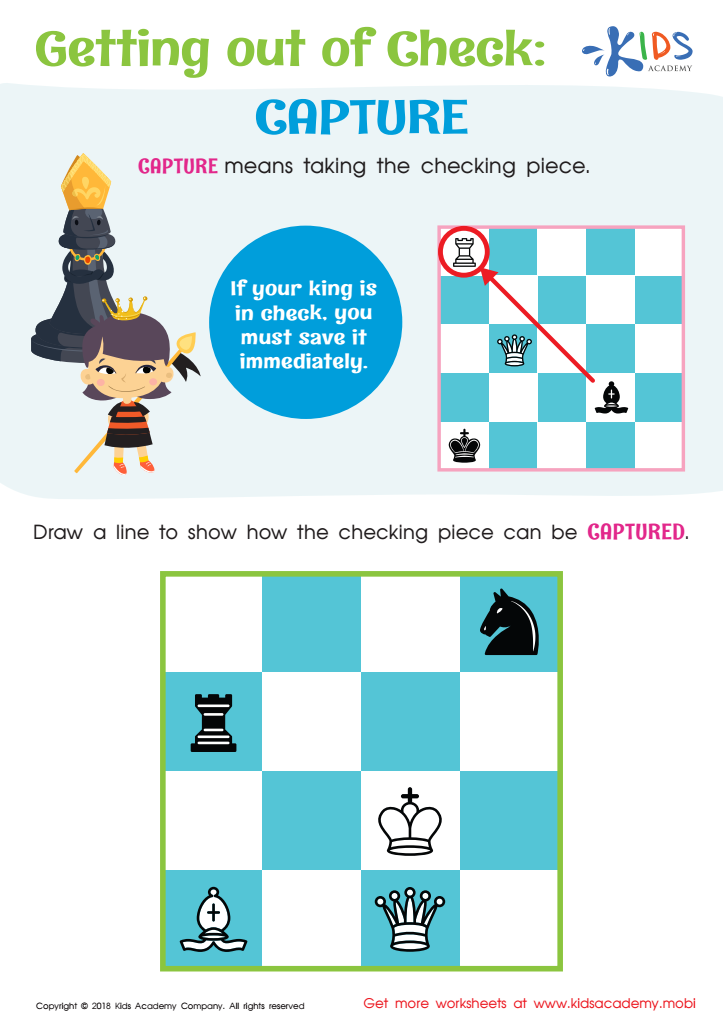

Getting out of Check: Capture
Chess is more than just a game; it’s a powerful educational tool that can significantly benefit children aged 4-6. Understanding chess strategies at a young age nurtures critical thinking and problem-solving skills. When parents and teachers encourage young learners to engage with chess, they cultivate an early appreciation for strategy and tactics, promoting cognitive development. These skills can translate into greater academic success and improved performance in other subjects, such as mathematics and reading.
Engaging with chess also fosters patience, focus, and responsibility in young children. As they learn to anticipate their opponents’ moves and plan several steps ahead, they enhance their ability to concentrate for longer periods. This mental focus is crucial in early childhood development, where distractions often hinder learning.
Moreover, chess is an inclusive activity that encourages social interaction and communication skills. Whether playing with peers or family members, children learn about sportsmanship, sharing, and thriving in a cooperative environment.
Finally, introducing strategy understanding in chess lays the groundwork for lifelong learning. Teaching kids that challenges can be tackled strategically builds resilience, encouraging them not to shy away from difficult situations in and out of the classroom. Thus, for parents and teachers, nurturing chess strategy understanding is a vital aspect of holistic childhood development.
 Assign to My Students
Assign to My Students















